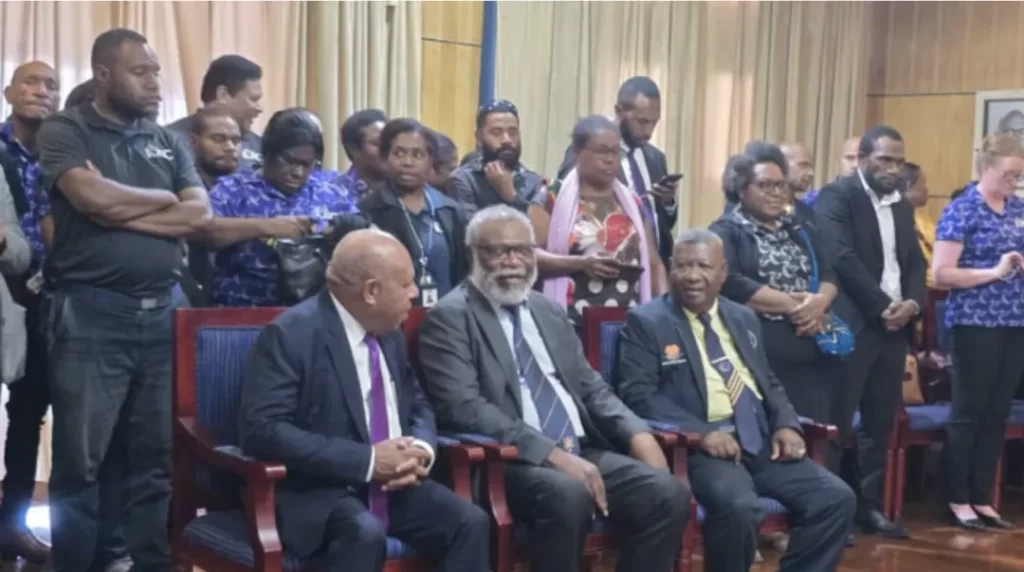At a pivotal moment for Papua New Guinea’s political and legal landscape, the country’s key anti-corruption body — the Independent Commission Against Corruption (ICAC) — officially entered a new transitional phase on the afternoon of July 8, with the swearing-in of its interim leadership team at Government House in Konedobu, Port Moresby.
According to the official announcement, former senior police official Thomas Eluh has been appointed Interim Commissioner, while the roles of Deputy Commissioner are jointly filled by current senior judge Ellenas Batari and retired judge Don Sawong. The swearing-in ceremony was presided over by the Governor-General, Grand Chief Sir Bob Dadae, underscoring the high level of national commitment to the anti-corruption agenda.
In his inaugural statement, Commissioner Eluh expressed gratitude to the ICAC Appointments Committee for their trust and confidence.
He emphasized the gravity of the interim appointments, particularly given the heightened scrutiny and sensitivity surrounding the Commission’s current operations. “We are taking office at a time when public attention is intense, and institutional operations are highly sensitive,” he stated.
Eluh further clarified that the original Commissioner and Deputy Commissioners have been suspended due to ongoing investigations and that the matter is being addressed through lawful procedures.
To uphold the independence of the investigation and the integrity of due process, Eluh declined to comment on any specifics regarding the ongoing cases.
The formation of the interim leadership is widely seen as a positive move by the PNG government to uphold the rule of law and to maintain momentum in the national fight against corruption. In recent years, a series of high-profile corruption scandals have shaken public confidence, and the performance and independence of the ICAC are now under significant public and political scrutiny.
Commentators agree that the new interim leadership will be tested on its ability to act with transparency, efficiency, and fairness as it navigates this sensitive transitional period.
Analysts note that anti-corruption efforts are essential to restoring public trust, attracting foreign investment, and securing national stability as PNG continues its journey through economic transformation and governance reform.
The successful installation of the ICAC’s interim leadership sends a strong message that Papua New Guinea remains committed to building a clean and accountable government, and that corruption will not be tolerated.


